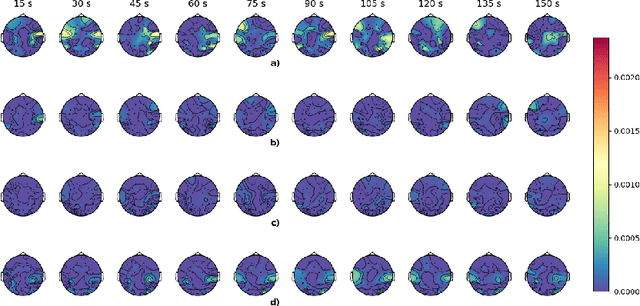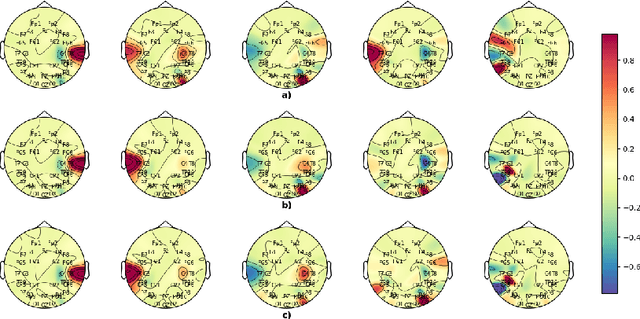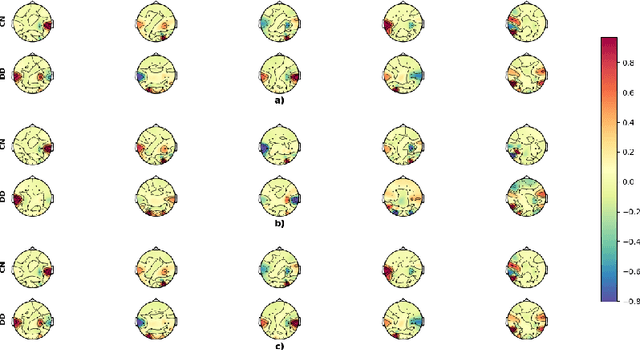Temporal EigenPAC for dyslexia diagnosis
Paper and Code
Apr 13, 2021



Electroencephalography signals allow to explore the functional activity of the brain cortex in a non-invasive way. However, the analysis of these signals is not straightforward due to the presence of different artifacts and the very low signal-to-noise ratio. Cross-Frequency Coupling (CFC) methods provide a way to extract information from EEG, related to the synchronization among frequency bands. However, CFC methods are usually applied in a local way, computing the interaction between phase and amplitude at the same electrode. In this work we show a method to compute PAC features among electrodes to study the functional connectivity. Moreover, this has been applied jointly with Principal Component Analysis to explore patterns related to Dyslexia in 7-years-old children. The developed methodology reveals the temporal evolution of PAC-based connectivity. Directions of greatest variance computed by PCA are called eigenPACs here, since they resemble the classical \textit{eigenfaces} representation. The projection of PAC data onto the eigenPACs provide a set of features that has demonstrates their discriminative capability, specifically in the Beta-Gamma bands.
 Add to Chrome
Add to Chrome Add to Firefox
Add to Firefox Add to Edge
Add to Edge